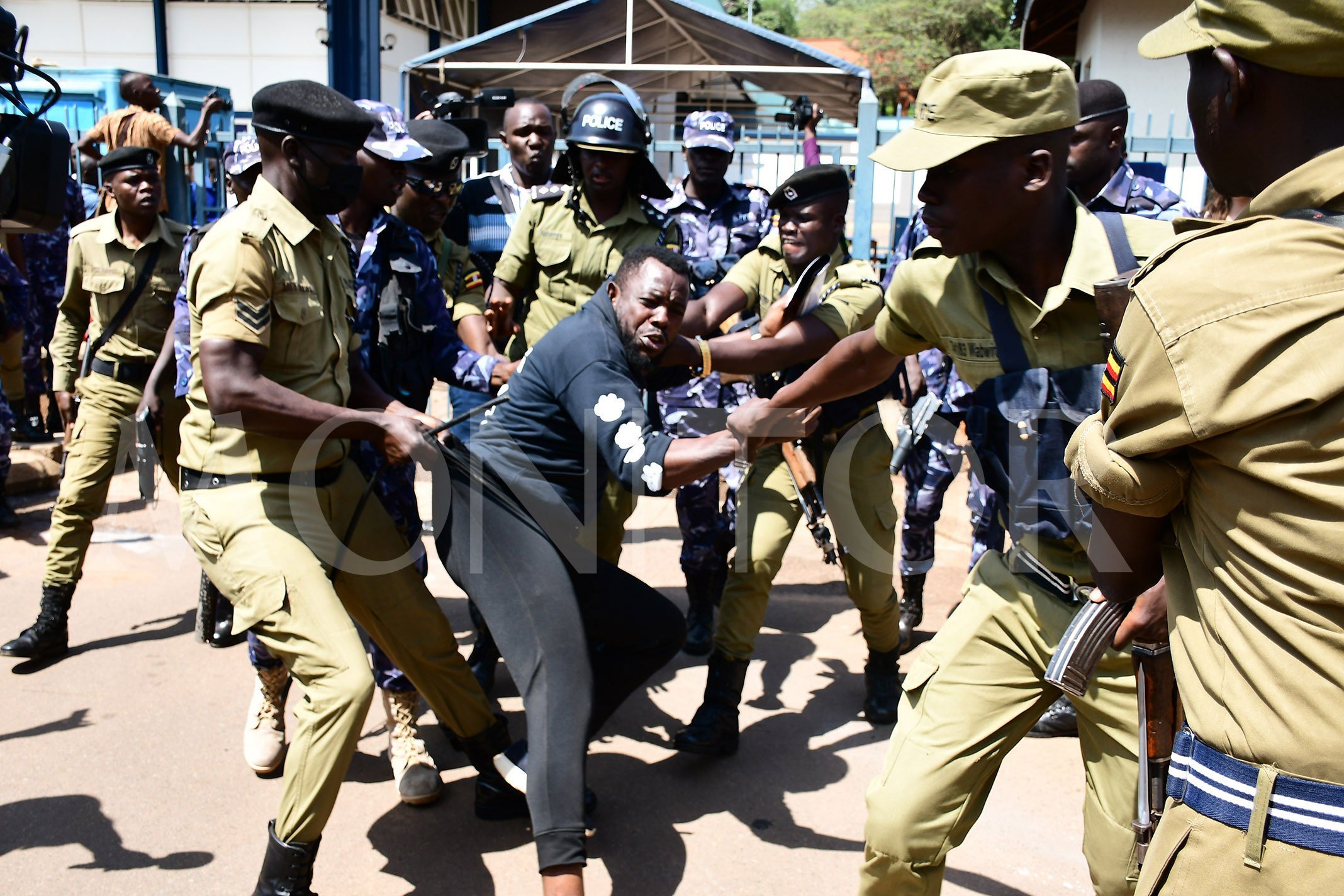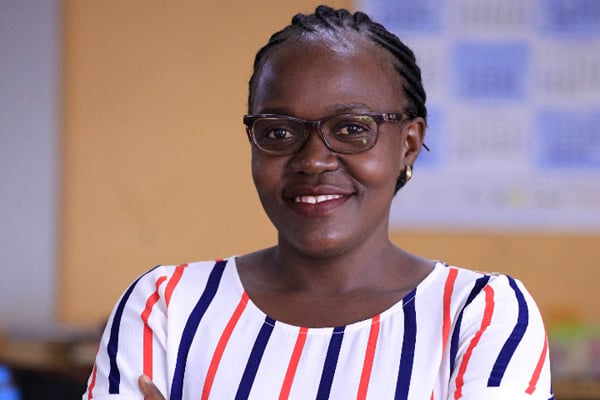Prime
Environment activists demand release of nine students remanded over EACOP protest

A group of university students were blocked and some arrested, as they marched to EU offices in Kampala to deliver a petition in support of the EU Parliament resolution to halt the East African Crude Oil Pipeline (EACOP) project on October 4, 2022. PHOTO/ ABUBAKER Lubowa
What you need to know:
- Mr Allan Kalangi, a manager at NAPE said that the continued harassment of Ugandans for supporting the EU resolution on EACOP only serves to confirm the worries of the EU and the Ugandan public on the human rights situation in the country.
A section of environment activists in Uganda have asked the state to unconditionally release a group of students who were arrested for holding a peaceful demonstration in support of the recent European Union resolution calling for the delay of the East African Crude Oil Pipeline (EACOP).
Nine students from various universities across the country were on Wednesday remanded to Luzira prison on allegations that they participated in an illegal demonstration.
The EU Parliament resolution seeks to delay the construction of the EACOP citing human rights abuse and environmental degradation concerns.

A group of university students were blocked and some arrested, as they marched to EU offices in Kampala to deliver a petition in support of the EU Parliament resolution to halt the East African Crude Oil Pipeline (EACOP) project on October 4, 2022. PHOTO/ ABUBAKER Lubowa
Under their National Association Of Professional Environmentalists (NAPE) have asked the Uganda government and the oil companies to address the issues raised by the EU instead of continuing to intimidate and arrest people for talking about EACOP and other oil development projects in Uganda.
“The legal fraternity and other human rights defenders should intervene and ensure that the students are released to go back to school. Parents did not pay school fees for their children to serve in prisons,” said NAPE executive director, Mr Frank Muramuzi.
EACOP protests irony not lost on Bobi Wine
Addressing the media in Kampala, Mr Muramuzi said they are concerned about the brutal manner in which the students were arrested by the security operatives and that the offence of common nuisance they were charged with before being remanded to prison.
According to Mr Muramuzi, the detention of the students is in contravention of the Constitution which provides for freedom to assemble and demonstrate together with others under Article 29 (1) (d).
“The Government of Uganda should unconditionally release the nine students immediately. Their continued detention is a clear indication that the state is bent on intimidating and harassing everyone who raises a red flag on what might be going wrong in the country's development projects. This kind of harassment should stop because it is our collective duty as citizens to inform the government that all development projects should conform to the dictates of environmental and social justice,” Mr Muramuzi said.
ALSO READ: It's illogical to disrupt EACOP implementation due to the hygiene in today’s politics
Mr Muramuzi added; “It is a shame for the government to arrest peaceful citizens simply because they are critical of its undertakings. In any case, this EACOP and other oil development projects are public investments that should be kept under scrutiny by the citizens.”

NAPE executive director Mr Frank Muramuzi (left) and the programme manager, Yusuf Rajab Bwengye (right) pictured as they addressed journalists in Kampala on October 7, 2022. Photo/ Juliet Kigongo
The detained students are: Imran Ntabazi, a student at Gulu University, David Musiri and Vincent Lubega Nsamba, from Makerere University, and six Kyambogo University students identified as Gerald Wenani, Gonga Akisi, Marktom Kajubi, Benjamin Akiso, Alphonse Nkuruziza and Alex Waswa Lyazi.
“Recently we saw people demonstrating in Kampala and Hoima cities against the EU Parliament resolution on EACOP. It was their right to demonstrate and the police did not harass them. How come now those who demonstrate in favour of the resolution are singled out and detained by the state?” Mr Muramuzi wondered.
Mr Allan Kalangi, a manager at NAPE said that the continued harassment of Ugandans for supporting the EU resolution on EACOP only serves to confirm the worries of the EU and the Ugandan public on the human rights situation in the country.
The activists asked the government to address the environmental and social challenges instead of criticizing the EU Parliament resolution.
On September 15 this year, the EU Parliament passed a resolution expressing concern about numerous social and environmental risks posed by both the Tilenga and EACOP oil and gas projects in Uganda and Tanzania calling for a temporary halt of the projects for at least one year re-thinking the best options to address the concerns.
[email protected]





